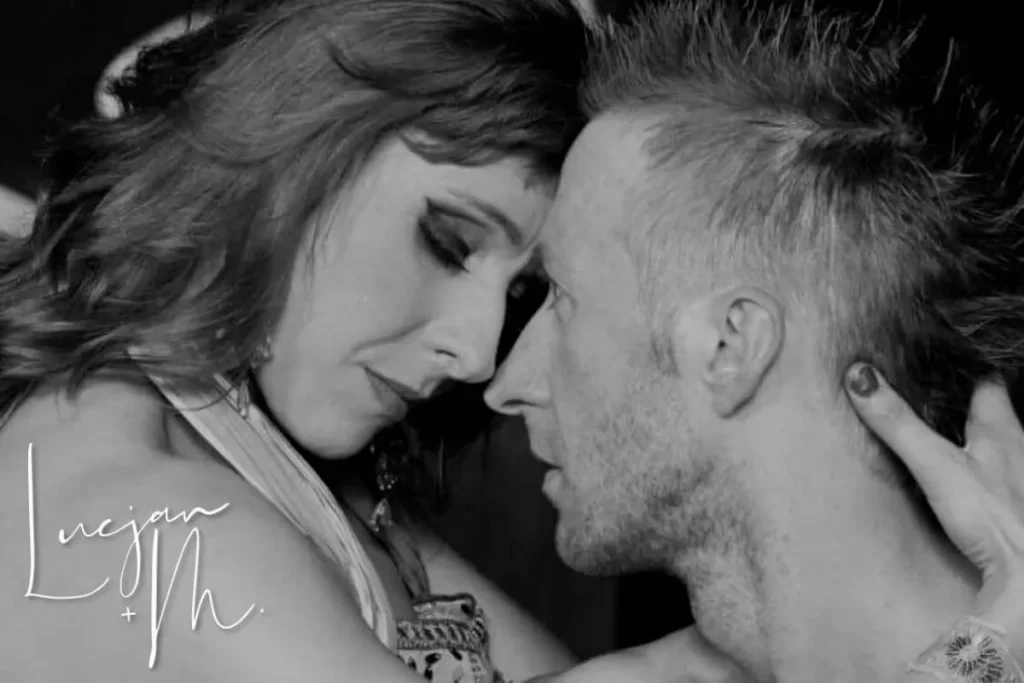What do male partners of chronically ill women feel?
No one ever said that being the partner of someone who suffers from a chronic illness would be easy. In fact, it can be downright challenging at times. How male partners of chronically ill women feel can be difficult to imagine because they rarely speak up about their feelings.
For men who care about their partners suffering from endometriosis and fibromyalgia, it is important to understand how they are affected by their partner’s illness and learn how to cope with their own emotions. This can be a difficult task, but with some patience and understanding, it is definitely possible.
What effect chronic illnesses have on relationships can vary. Chronic conditions often shift the balance in the relationship due to more responsibilities falling on men who aren’t used to female chores and tasks. It creates an imbalance in the relationship. If you’re providing care, you can start to feel overwhelmed and resentful. And if you’re receiving care, you can feel more like a patient than a partner.
In this blog post, I will discuss some of the challenges that men face when their partners are battling chronic illnesses such as endometriosis and fibromyalgia. I will also give tips on how to communicate effectively and appreciate life even in the midst of these illnesses.
I always try to give the best advice to men who care about their partners suffering from endometriosis and fibromyalgia because I’ve learned how to navigate through them for over a decade.
How do male partners of chronically ill women feel?
As the partner of a woman suffering from endometriosis, you may find yourself feeling helpless at times. It is important to remember that your support and love are crucial in helping your partner cope with this condition.
Endometriosis can be a very isolating illness, so it is important to make sure that you are there for your partner when she needs you. One way to do this is by simply listening to her when she wants to talk about her condition. You may also want to encourage her to seek out support groups or counseling if she feels like she needs additional help.
Fibromyalgia can also be a difficult illness for both partners to deal with. This is because fibromyalgia can cause widespread pain and fatigue, which can make it difficult to participate in activities that you once enjoyed together.
It is important to be patient and understanding with your partner if she is dealing with these symptoms. You may need to help her with household tasks or childcare if she is not feeling up to it. It is also important to communicate openly about how you are feeling and what you need from your partner.
Even though living with a chronic illness can be challenging, it is important for you to remember that life is still worth living. There are many ways to enjoy life even when you are battling a chronic illness. One way to do this is by focusing on the positive aspects of your relationship.
Another way to appreciate life despite a chronic illness is by taking time for yourself and doing things that make you happy. But what actually do male partners of chronically ill women feel?
Being a man who cares for his partner I can openly say, that even though what I feel is nothing in comparison to my wife’s struggles, it is still challenging because we (men) often seem to be forgotten.
If you are the partner of a woman suffering from a chronic illness, remember that you are not alone. There are many other men in your situation who understand what you are going through. I am one of those men.
The number of partners providing informal care for their chronically ill spouses is rising, and they describe their daily life as demanding. But it really doesn’t have to be if both partners work together by communicating with each other. I’m real proof of that, chronic conditions like endometriosis and fibromyalgia don’t have to divide you, they can actually bring you closer together.
April 2022 marked 10 years of me being married to my beautiful wife, however, she doesn’t feel beautiful anymore and constantly puts herself down. M hates the mirror, even though she looks absolutely stunning!

After she lost her dance career due to the illness, her mental health began to spiral down. She used to practice for 8 hours a day, performed, taught, and choreographed dance. Today she struggles to dance one hour per week, which always results in fibromyalgia flare-ups and chronic fatigue.
If your relationship is being impacted by the illness, seek help. It is widely available.
Seek out support groups or counseling if you need help dealing with your emotions. With understanding and communication, you can still have a fulfilling and enjoyable relationship despite a chronic illness.
Here are some tips on how men can support their women in the battle against endometriosis and fibromyalgia:
- Be there for her when she needs to talk about her condition.
- Help with household tasks or childcare if she is not feeling up to it.
- Communicate openly about how you are feeling and what you need from one another.
- Focus on the positive aspects of your relationship remembering why you got together.
- Take time for yourself and do things that make you happy.
- Encourage her to seek out support groups or counseling.
- If you need help dealing with your emotions, do the same.
As a man, I’m here to tell you that you are not alone in this battle. Many men are in your situation and understand what you are going through. Seek out support and understanding to help you both cope with the challenges of a chronic illness.
Endometriosis and fibromyalgia can be difficult illnesses to deal with, especially if you are not the one who suffers from these chronic conditions, but it is important to remember to focus on the positive aspects of your relationship, to take time for yourselves, and to do things that make you both happy.
Chronically ill women might not know what their male partners feel but by asking them and understanding, you can still have a fulfilling and enjoyable relationship despite these chronic conditions. Communication is the key.
Male partners of chronically ill women often feel emotionally overwhelmed. They want to take care of their partner but feel helpless because they cannot fix the pain or fatigue their partner is experiencing daily.
What male partners feel can vary!
When male partners of chronically ill women feel can vary from person to person. I decided to split it into a few groups by asking the following questions:
- What to do when men feel helpless?
- What to do when men feel judged?
- What to do when men feel depressed?
Let’s discuss them one by one quickly…
When male partners feel helpless…
Male partners of chronically ill women feel helpless because it can be difficult to watch the person you love suffer day in and day out with no relief in sight. What goes through your mind can be really overwhelming and men usually experience:
- fear of the future
- anxiety and depression
- worsening relationship with your partner
- reduced or even absent sex life
- lack of sleep
- social withdrawal
- feeling alone
- financial strain and medical costs
The burden of a chronic illness falls not only on the ill person but also on her partner. It can be especially challenging when the caregiving men feel judged for not helping enough or not doing things accordingly to what the chronically ill person requires.
When male partners feel judged…
As a blogger, I love the feeling of expressing my emotions to the world. To me, it is like counseling because I don’t bottle my emotions inside of me but express them.
I always felt like I couldn’t tell my wife with honesty how I felt at a particular time, whenever these emotions were negative. I always put my wife’s well-being first as endometriosis and fibromyalgia were enough for her to cope with, and the last thing I wished was to upset her with my own feelings. And so I hid them.
It felt right because I would be judged for being selfish if I was to express my anger or even my resentment.
These feelings weren’t intentional, it’s just a part of living with a chronically ill person that I have learned to accept, however, I needed to set some boundaries, and I suggest you do too in order to protect your own mental well-being, otherwise, you will most likely fall down into depression.
When male partners feel depressed…
Chronically ill women don’t know what their male partners feel because men hide their emotions. They don’t like to speak about it. We are meant to be protectors, someone our partner can rely on and we are bound not to show any weakness. It often makes us feel alone, even depressed.
Some men may start to realize that bottling up all their emotions is making them extremely unhappy, but they still do because they feel like they have to prioritize their partner’s health. They love their women but it becomes exhausting to be in such relationships when they feel powerless and their struggles invisible.
Summary of how male partners of chronically ill women feel?
So, what do male partners of chronically ill women feel? The best advice I can give to men who care about their partners suffering from endometriosis and fibromyalgia is as follow:
- learn about her conditions
- openly listen to her
- don’t judge, be patient
- accept her limitations
- talk honestly about your feelings
- be ready to cancel plans
- focus on the positive aspects
- remember why you fell for her
- don’t give up on her
I hope that you found this post helpful, but if you feel like your partner needs immediate help here’s a quick note:
If you or someone you know is struggling with suicidal thoughts, please reach out to the National Suicide Prevention Lifeline at 800-273-TALK (800-273-825). National Institute of Mental Health: 800-421-4211.
Trained counselors are available 24/seven to provide support and connect callers with local resources. You are not alone. Help is available!
Crisis Text Line: text “HOME” to 741741 from anywhere in the United States, anytime, about any kind of crisis. A live, trained Crisis Counselor receives the text and responds quickly. The Crisis Counselor will help you move from a hot moment to a cool calm to stay safe and get the support you need.
Also, Endometriosis Association: info@endometriosisassn.org, Endometriosis Foundation of America: contact@endofound.org, Fibromyalgia Association of Greater Washington: fibro@erols.com, National Fibromyalgia Association: nfra@fmaware.org, American Chronic Pain Association: info@theacpa.org
